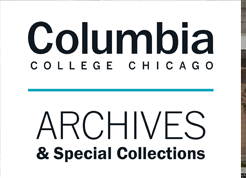Dr. Micah Salkind is the Deputy Director of The City of Providence Department of Art, Culture, and Tourism and Adjunct Assistant Professor of Humanities in the Department of American Studies at Brown University. As part of his work, he collaborates with large non-profit cultural institutions as well as emerging artists, designers, and creative entrepreneurs. He also serves on the boards of the Providence Public Library and Community MusicWorks and is an ongoing collaborator with dancers and scholars in Chicago’s Honey Pot Performance collective and Matthew Cumbie Projects’ “Growing Our Own Gardens” initiative.
A DJ, sound designer, and curator, he is the author of Do You Remember House? Chicago’s Queer of Color Undergrounds for which these oral history interviews were collected. The work "historicizes house music, the rhythmically focused electronic dance sound born in the post-industrial maroon spaces of Chicago's queer, black, and Latino social dancers. Working from oral history interviews, archival research, and performance ethnography, it argues that the remediation and adaptation of house by multiple and overlapping crossover communities in its first decade shaped the ways that contemporary Chicago house music producers, DJs, dancers, and promoters re-remember and re-animate house as an archive indexing experiences of queer of colour congregation."
Currently, the audio files and biographical information are available; transcripts will be added when complete.
-

Interview with Justin “Swaguerilla/Hijo Pródigo” Mitchell
Micah Salkind
Hijo Pródigo is the sound identity of the Philadelphia-born and Chicago-based artist and DJ Justin Ignatius Mitchell. The sound Hijo Pródigo cultivates through their DJ work spans subcultural club music movements shared across the world. Experimenting with themes of dissonance, euphoria, destruction, redemption, and rebirth, Mitchell’s work serves to contribute to a sonic and physical dialogue regarding queer spirituality, communal catharsis, the folly of masculinity, and the nihilism of nightlife. Hijo Pródigo is currently working on new ways of existing and has found a platform to access their potential in the Chicago-born FUTUREHOOD indie music label and artist collective.
-

Interview with Kelsa Robinson
Micah Salkind
Kelsa “K-Soul” Robinson is co-founder/co-artistic director of BraveSoul Movement, and member of the internationally known street-dance crew, Venus Fly. She is a dance artist, choreographer, educator and community development specialist with strong grounding in the underground house, hip-hop and street-dance communities. Kelsa has performed and shown work at the Museum of Contemporary Art (Chicago, IL), B.Supreme (London, UK), B-girl Be (Minneapolis, MN) J.U.I.C.E. Hip-Hop Dance Festival (Hollywood, CA), DanceGATHERING (Lagos, Nigeria), and Pritzker Pavilion (Chicago, IL). Kelsa has dedicated much of her career to working at the intersection of activism, community building and the arts. In recent years this has centered around building diversity, equity and inclusion through developing culturally sustainable pedagogy, and reciprocal relationships between Hip-Hop and the academy.
-

Interview with Larissa Johnson
Micah Salkind
Larissa Johnson is a dancer and promoter who was raised on the South Side of Chicago during the 1970s and 1980s. She partied at high school sock hops at her alma mater Kenwood, and at other house parties and parochial schools, but eventually graduated to underground spaces like The Music Box and Club Naked. Johnson left Chicago to attend college but later returned and became part of the social dance communities at parties like Cordell Johnson’s Excursions.
-

Interview with Larry Hope
Micah Salkind
Designer Larry Hope was raised in Chicago’s West Side. After attending John Marshall High School, he went to the Art Institute of Chicago where he studied apparel design. As a young adult, he fell in with US Studios co-founder Michael Matthews and his friends, traveling with them to New York City where they were inspired to create the underground club spaces that birthed The Warehouse. Hope is known for his iconic leather hats, which were worn by DJs like Elbert Phillips and Ron Hardy.


